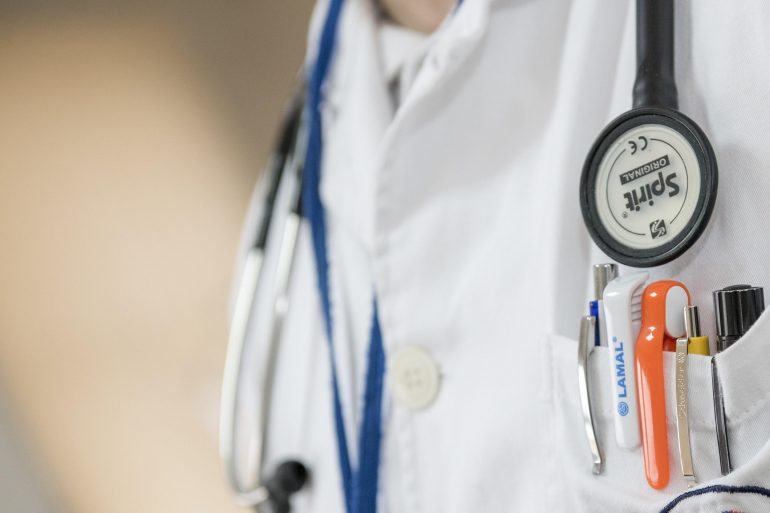New communication channels are establishing themselves between healthcare service providers and patients at a rapid rate thanks to the power of handheld technology. The truth is, the benefits of mobile devices go beyond communication because they also help to create better coordination, build relationships of trust and help to improve diagnostic accuracy.
Overall, mobile devices have the power to revolutionise healthcare. Despite the benefits and the clear impact they can have on healthcare for patients, providers are less willing to integrate smartphones and tablets into their daily practice.
The reason for such an aversion to change could be down to two reasons. The first being a reluctance to spend money on embracing a new technology, coupled with an ‘if it isn’t broken, don’t fix it’ outlook. The second, and perhaps most significantly, may be due to the number of errors that can occur when using devices, and the exploitation of patients and their private details. Some providers fear that a lack of better standards and policies when using smart-tech such as smartphones in the healthcare arena can contribute to vast amounts of security risks.
For this reason, it may be useful to understand the benefits of smart mobile technology and how they can actually be incorporated without causing harm and diluting down the fears of those using them. Here are a few advantages of using mobile devices and how they are transforming healthcare.
1 – Seamless data flow
Concerning data flow, there is a continuous flow of information between healthcare providers and patients which makes it a very complex system to work with. Hospital administrators also need access to the data for accounting and auditing purposes. Mobile technology such as smartphones and tablets can help move information around the complex ecosystem more efficiently, which means data can be sent through the system faster with phones and tablets working as end-points. This will give healthcare providers more control over the information and dispersion of it. Working in this way will also mean misplaced files and paperwork and folders won’t be a worry. As mentioned above, cybersecurity is, of course, a significant concern. However, the pros of mobile health outweigh the small levels of concern. This is why healthcare providers have recently been investing in systems that use mobile smart tech that can seamlessly exchange data across their networks.
2 – Increase diagnostic accuracy
Using paper is a huge burden for healthcare professionals, especially when keeping track of patient records. Overtime computers have helped to lighten the burden, but in the way that computers have helped so can mobile devices. Firstly the nature of mobile devices means that there is no need for paper. This has lead to an increase in diagnostic accuracy. Doctors and nurses can keep accurate and descriptive notes, which indicate fewer mistakes. Mobile apps can also run automatic checks on prescriptions resulting in fewer errors. They are also great to use as tools to help recognise symptoms to diagnose and cure patients faster.
3 – Real-time communication and consultations
One of the most obvious benefits of smartphones and mobile devices are their flexibility to improve communication. This means that doctors and nurses can carry out remote consultations and inspections on patients using HD cameras on devices. Real-time communication also helps to build rapport. Besides the obvious benefits of mobile devices and the improvement they bring to doctor-patient relationships, they also promote collaboration and sharing of knowledge on a global scale. It allows experts from around the world to consult each other in real-time, sharing information and learning from one another.
4 – Direct patient management
Traditionally, healthcare providers have only had access to limited amounts of their patient’s data. For example, there was no way of monitoring the effect of the medicine on their patients or the ability to administer modern medication or remedies to help them. However, the landscape for this is changing. Smartphones and tablets, along with SmartPhone Checker wearables, are now being used to get regular data and vital metrics that can help professionals keep tabs on their patients. Doctors and nurses can check up on their patients by using their mobile devices and can play a more active role in guiding their patients and dramatically improve the quality of care.
5 – Better points of care
In a hospital setting, once patients are discharged, they are given a prescription with instructions on the medication. For example, when to administer the medication and the quantity. Once this information has been given to the patient, and they are sent home, there is no way of knowing if this information shared with the patient has been adequately understood. There is also no way of knowing if they are following the instructions clearly and following the procedures they were given. Poor communication and the complexity of product names and ambiguities can lead to misunderstandings and confusion in instructions. These put together can cause medication errors.
On the flip side of this is the fact that mobile devices are changing these dynamics. This is because mobile devices give doctors and nurses the flexibility to coordinate better with their patients about their diagnosis, medication and the process for follow-ups. The mobile devices also allow them to monitor if the patient has understood the instructions clearly making the point-of-care coordination better. This can have a positive effect on a patient’s recovery and can decrease the number of readmissions overtime. This change in care ultimately streamlines the process between inpatient and outpatient care.
6 – Customised care
The volume of patients that healthcare professionals have to deal with means it can be impossible for them to provide care for every individual patient under their supervision. Smartphone and tablets are helping physicians provide custom care without needing to invest significant amounts of time because they can do it all from their devices. This means doctors can create profiles and categorise their patients to provide them with the right level of care. Doing so will help them pinpoint solution for each of their patients in their own time.
There is no doubt that technology is changing the way we live and our daily routines but it is also changing the way we look after one another. Although they are great, the risks involved when using them should not be ignored. Because of this reason, implementing mobile devices for healthcare does need to come with regulations. This does not mean that they should be turned away because of the risks they pose but instead worked with because of the benefits they can offer.







